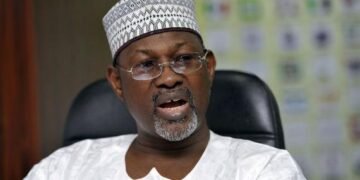According to the Medium-Term Expenditure Framework and Fiscal Strategy (MTEF/FSP) report released by the Federal Ministry of Finance, Budget, and National Planning, the Federal government of Nigerian (FGN) retained revenue between January and March 2020 was N950.56 billion.
This represents 48.34% actualization of the projected revenue for the period. FGN projected revenue for first quarter of 2020 was N1.967 trillion.
However, due to the distortion in economic activities and fall in oil prices FGN recorded a 51.66% shortfall in its projected revenue.
Of the N950.56 billion total revenue, oil contributed N464.03 billion, which represents 48.8%. although the revenue from oil was projected to be N659.40 billion.
Non-oil revenue contributed just over 28% of the FGN revenue. N269.41 billion was realized from non-oil sources, representing a 40.00% shortfall.
Non-oil revenue comprised of N129.72 billion from Company Income Tax (CIT), N92.22 billion from Customs revenue, N42.23 billion from Value Added Tax (VAT), and N5.25 billion from federation account levies.
- Have you read?
- Reps Pass Increased 2020 Budget of N10.805 trillion, Approves $5.51 billion New Borrowing
- All sectors expressed pessimism on own operations in June – CBN Report
Other contributors to the revenue are FGN drawdowns from special accounts/levies and FGN independent revenue, which brought in N166.00 billion and N51.12 billion respectively.
FGN recorded ZERO revenue from a total of N450.54 billion projected from five different sources. These five sources are;
- N83 billion from signature bonus/renewals/early renewals
- N99 billion from stamp duty
- N25 billion from domestic recoveries, assets and fines
- N37 billion from exchange rate differentials (Non-FAAC)
- N10 billion from grants and donor funding.
The Federal Government of Nigeria failed to realize any revenue from the above mentioned sources, recording a 100.00% shortfall.
On the other hand, FGN achieved 97.6% of N2.428 trillion of the projected expenditure for he period in review.
For the first three months of the year, FGN spent a total of N2.370 trillion with recurrent expenditure gulping N2.090 trillion. The actual recurrent expenditure was 16.1% more than the pro rata of N1.801 trillion.
Actual Personnel costs increased by 3.2% to N729.56 billion from N706.91 billion which was budgeted for the 3 months period.
On the contrary, the actual Capital Expenditure decreased by 71.3% to just N139.70 billion from N487.27 billion budgeted for the period in review.
For more details on the FGN expenditure read, Nigeria Used 99% of Revenue for Debt Servicing in Q1 2020
FGN has been increasing borrowing to finance its expenditure. However, it is mind boggling to see that only a small proportion, 5.89% of the government’s expenditure is appropriated to capital expenditure in the country, while 88.19% was used for recurrent expenditure.
Written by;
Ifunanya Ikueze






















































